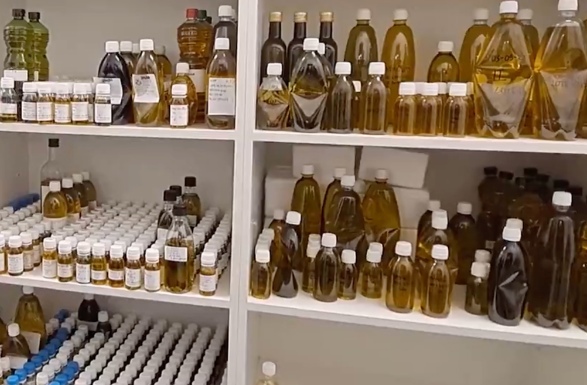The first quarter of this year saw a record number of potential fraud and mislabelling of olive oil in the EU, as inflationary pressures fuelled the growth of a hidden market for this kitchen staple, The Guardian reports.
The cost of olive oil has more than doubled since 2018, with production affected by extreme weather conditions caused by the climate crisis and other factors.
As prices have risen, so have the number of “EU cross-border notifications,” which include mislabelling, potential fraud and safety incidents involving contaminated oil.
In the first quarter of 2018, the EU recorded just 15 such cases. In the first three months of this year, the number of such cases rose to a record 50, more than tripling, according to data provided to the Guardian under freedom of information laws.
However, these are only cases that have been detected and reported by Member States to the EU Directorate General for Health. This figure does not take into account cases that occurred domestically, and the true scale of fraud is probably much higher.
Incident reports included oils contaminated with unauthorised substances such as pesticides, mineral oils and in one case glass shards were found.
There were also numerous cases of adulteration of extra virgin olive oil, for example by mixing it with lower quality or cheaper oil, cases where extra virgin olive oil was labelled as extra virgin (unrefined extra virgin oil with lower acidity), and several cases of misleading or false labelling of origin.
Germany reported a case from Israel in February in which “lampante oil,” which is considered unfit for human consumption without further refining, was sold as “extra virgin olive oil.” Some oils crossed multiple borders, for example, in March Germany reported a case of “misleading mislabelling of olive oil from Syria via the Netherlands.”
Of the 182 notifications of olive oil adulteration and non-compliance sent to the EU since the beginning of 2023, 54 concerned products from Italy, 41 from Spain and 39 from Greece.
The EU introduced new rules in July 2022 to verify compliance with marketing standards for olive oil, as well as methods for analysing it.
